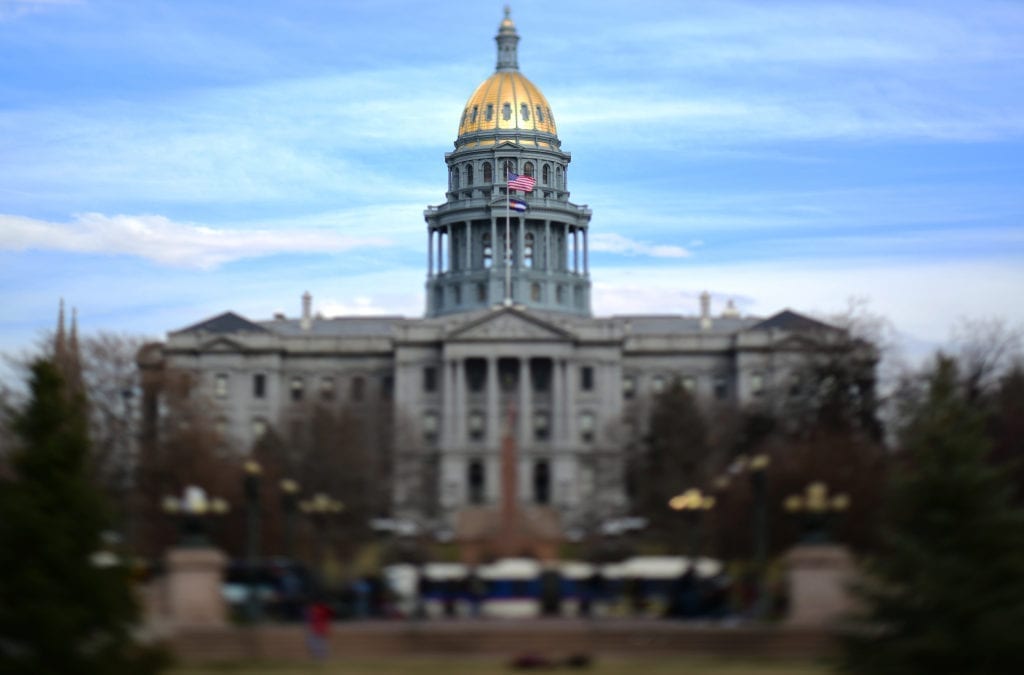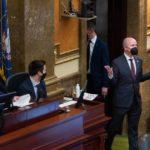Colorado received good fiscal news Friday for the first time in months: The immediate budget crisis set in motion by the coronavirus pandemic is suddenly a bit less dire — and next year’s numbers look a little rosier, too.
Just days ago, the state legislature finalized spending cuts aimed at closing a roughly $3 billion budget shortfall, the result of plummeting tax projections and a new recession. But new economic forecasting data suggests the state’s reserves could collect $365 million more than analysts previously expected for the current fiscal year — which ends June 30 — and about $270 million more for the 2020-21 fiscal year.
That would give Colorado some cushion. State budget writers attribute the positive forecasting changes more to actions the legislature took than to indications of a healthy economy. Lawmakers in recent weeks passed a slew of bills that will bring in more money, including one that eliminated several corporate tax breaks.
“The good news is primarily because of the bills that we passed to increase revenue and therefore save a little bit,” said state Sen. Dominick Moreno, D-Commerce City, the vice chair of the bipartisan Joint Budget Committee. “The bad news is it’s still not enough to make up for the shortfall.”
Not even close — looking ahead to the 2021-22 fiscal year, the projections would leave state coffers about $1.5 billion shy of where they stood in the pre-coronavirus projections.
That’s much better than a grimmer alternative scenario that lawmakers had feared: a forecast showing even steeper tax revenue declines, requiring even further cuts right now.
“I think we’ve avoided short-term disaster,” said state Sen. Bob Rankin, R-Carbondale, who sits on the Joint Budget Committee.
But, Rankin added, “I think that we don’t know the full picture yet. It will evolve over this year. But every time it gets a little better, we put a little bit more money in reserves for next year — and we did that this time. Any improvement means money in the bank, getting ready for next year, which is what we’re really afraid of.”
Federal aid is expected to end by then. “We will have a really difficult budgeting year,” Rankin predicted.
That will almost certainly be true even with a strong economic bounce-back. Colorado’s budget years were tougher in 2009 and 2010 than they were when the last recession began in 2008, and budget writers expect next year will bring fresh challenges. There are several reasons, including the fact that the state just tapped a slew of one-time funds to close the current budget gap.
Budget writers learned Friday that the latest projections show Colorado’s general fund taking in about $1.34 billion more in 2021-22 than officials expected as recently as last month.
They aren’t celebrating that, though, since they still would have the remaining $1.5 billion shortfall to make up. Colorado just received about $2 billion in federal coronavirus aid money, and lawmakers are planning as though no such aid will be available by the time the next budget cycle come around.
State Rep. Daneya Esgar, D-Pueblo, who chairs the Joint Budget Committee, said Friday’s numbers “feel better (compared to) what we’ve been dealing with, but I’m still very cautious.”
“There could be another spike,” she added. “There could be another uprise in the virus, where we have to shut down again. There’s so many factors we just don’t know because we’ve never been in the middle of a pandemic. But I’m hopeful that we’re on that road to recovery.”
Among the encouraging figures presented by budget analysts is one showing that in-person dining is now down an estimated 58% from pre-virus levels — a grim number, but much better than the total dining shutdown the state ordered from mid-March to late May. Data showed air travel and retail picking up slightly, while manufacturing continues to lag.
“This by no means was a green light that we’re in full recovery mode,” Esgar said of Friday’s report. “I’m still walking into the next budget cycle thinking it’s going to be a very difficult one.”
This content was originally published here.





